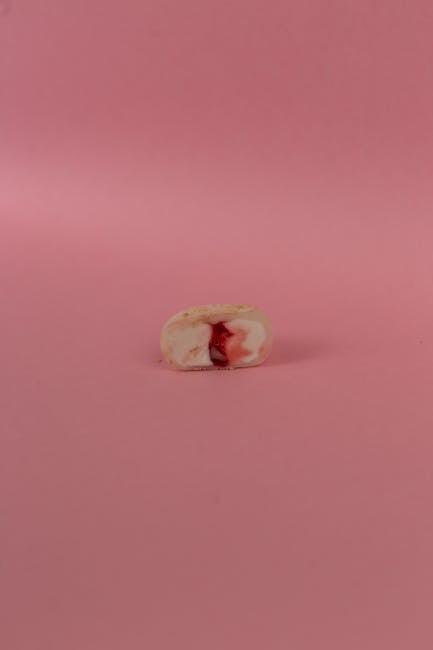
6 Tips to Prevent Tooth Loss in Aging Adults, Dental Experts Reveal
As we age, maintaining oral health becomes increasingly important—not just for a confident smile, but for overall wellness. Tooth loss is a common issue among aging adults, impacting nutrition, speech, and quality of life. Fortunately, dental experts share effective strategies to help prevent tooth loss and promote lasting dental health. In this article, we explore six essential tips to keep your teeth strong and healthy as you age.
Why Tooth Loss Increases with Age
Tooth loss often escalates as people grow older due to various factors, including gum disease (periodontitis), tooth decay, dry mouth, medications, and certain chronic illnesses. Poor dental hygiene and irregular dental checkups exacerbate this trend. According to the American Dental Association (ADA), nearly 1 in 5 adults over 65 have lost all of their natural teeth. Understanding these risks is the first step in preventing tooth loss.
6 Expert Tips to Prevent Tooth Loss in Aging Adults
Here are vital, dentist-recommended steps to ensure your teeth stay firmly rooted well into your golden years.
1. Maintain Meticulous Oral Hygiene
Daily oral care is the cornerstone of preventing tooth loss. Follow these practices diligently:
- Brush twice daily: Use fluoride toothpaste and a soft-bristled toothbrush to gently clean teeth and gums.
- Floss once daily: Remove plaque and food particles between teeth where a brush can’t reach.
- Consider antimicrobial mouthwash: It reduces bacteria that cause gum disease.
2. Regular Professional Dental Checkups
Schedule dental visits at least twice a year for cleanings and assessments. Professional care helps catch potential problems early, such as cavities and gum inflammation, before they lead to tooth loss.
3. Manage Gum Disease Proactively
Periodontal disease is the leading cause of tooth loss in older adults. Early gum disease is reversible, but advanced stages can cause the gums to pull away from teeth, weakening the supporting bone. Experts advise:
- Watching for signs: bleeding gums, bad breath, or gum recession.
- Consulting your dentist if you notice any symptoms.
- Undergoing treatments like scaling and root planing if diagnosed.
4. Optimize Nutrition for Oral Health
Your diet directly affects your teeth. Nutritional deficiencies can weaken enamel and gums. To support oral health:
- Eat calcium-rich foods like dairy, leafy greens, and almonds.
- Include vitamin D to improve calcium absorption.
- Limit sugary snacks and beverages that promote tooth decay.
- Stay hydrated to combat dry mouth, especially if taking medications.
5. Avoid Tobacco and Limit Alcohol
Tobacco use significantly increases risk for gum disease and tooth loss by reducing blood flow to gums and promoting harmful bacteria. Similarly, excessive alcohol consumption can damage oral tissues and dry out the mouth. Dental experts strongly recommend quitting smoking and moderating alcohol intake to preserve oral health.
6. Use Protective Dental Devices When Needed
For those who grind their teeth (bruxism) or participate in physical activities, wearing a nightguard or sports mouthguard can prevent excessive wear and physical damage to teeth. Consult your dentist about custom-fitted devices designed to protect your smile.
Additional Benefits of Preventing Tooth Loss
Keeping your natural teeth benefits more than just oral health. Here’s a quick look at the advantages of preventing tooth loss in aging adults:
| Benefit | Impact |
|---|---|
| Better Nutrition | Maintain chewing ability enabling a varied, healthy diet. |
| Clearer Speech | Natural teeth aid articulation and pronunciation. |
| Improved Self-esteem | Preserving your smile boosts confidence and social interaction. |
| Reduced Healthcare Costs | Preventing tooth loss lowers the need for prosthetics or surgery. |
Real-Life Experience: Mrs. Parker’s Journey
At 72, Mrs. Parker noticed her gums bleeding and teeth feeling loose. After visiting her dentist and adopting a thorough dental care routine, plus receiving periodontal treatments, she successfully halted tooth loss progression. She shares, “Taking control of my oral health gave me back my smile and confidence. The dentists were amazing guides.”
Frequently Asked Questions (FAQs)
Can tooth loss be completely prevented?
While some factors like genetics may play a role, most tooth loss is preventable through good oral hygiene, regular dental visits, and healthy lifestyle habits.
Is tooth loss inevitable with aging?
No, aging doesn’t automatically lead to tooth loss. Proper dental care allows many people to keep their natural teeth for life.
What role do dentures play?
Dentures restore function and appearance after tooth loss but preserving natural teeth is always the best option for health and comfort.
Conclusion
Tooth loss is a challenge many aging adults face, but with the right knowledge and habits, it can be largely prevented. Following these six expert tips—from meticulous oral care to lifestyle adjustments—can safeguard your smile and enhance your overall quality of life. Don’t wait for problems to arise; invest in your oral health today and enjoy the benefits for years to come.
Remember: Your smile is a lifelong companion—treat it well and it will serve you well!


